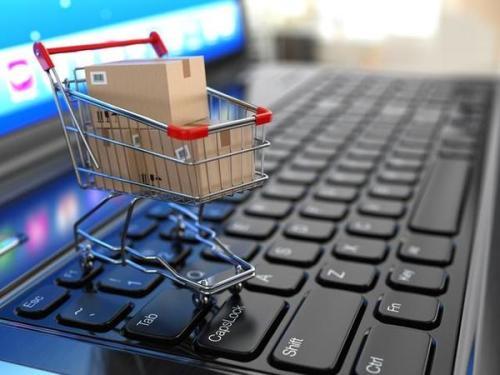CHANGCHUN, April 14 (Xinhua) -- Hunchun, a border city in northeast China's Jilin Province, saw its foreign trade reach 1.98 billion yuan in the first quarter of 2020, up 12 percent year on year.
Hunchun, as a city on China's border with the Democratic People's Republic of Korea (DPRK) and Russia, has four national ports. It is also an important node city of Belt and Road Initiative (B&R). In recent years, seafood and wood have been main trading commodities of Hunchun.
In 2018, Hunchun became a comprehensive service platform city operating cross-border e-commerce in China. With the development of cross-border e-commerce, Hunchun has been one of China's fastest and most favorable channels for the export of computer, communication and consumer electronics products (3C products) to Russia.
At the end of 2019, China approved the establishment of a comprehensive cross-border e-commerce pilot zone in Hunchun. In the first quarter of 2020, the trade volume of cross-border e-commerce in Hunchun reached 150 million yuan.
"Although the epidemic has restricted the exchange of personnel between China and Russia, customs clearance of goods does not suffer much impact," said Peng Shuhai, Deputy Secretary of Hunchun Municipal Party Committee.
Li Guibo, deputy director of Administration Bureau of Hunchun Comprehensive Bonded Zone, said that a 3,200-square-meter border storage warehouse in the zone and a collecting warehouse outside the zone have been already put into use. The Honghui International Logistics Park and the Cross-border E-commerce Industrial Park are under construction in an orderly way.
For some household appliances like TV and sweeping robots which are big in size, the transportation costs are very high when they are transported by air. However, if they are shipped via Hunchun land ports, the transportation fee can be saved by more than 10 yuan per kilometer. It thus becomes more popular among e-commerce companies that bear shipment fees.
"We collect 3C products from East and South China, export them via Hunchun Port, and then ship them by air to Russia," said Zhang Fengyuan, general manager of CEL Co.
At the same time, Hunchun can manufacture and process apparel and aquatic products. There are also electronic component factories in Hunchun, Hence, the city can be well connected with the cross-border e-commerce industry, according to Zhang Fengyuan.
Li Bo, head of the Hunchun Industry and Information Technology Bureau, said that currently there are 151 industrial enterprises in Hunchun, including 15 upstream and downstream enterprises of 3C products.
In addition to Russia, Hunchun also conducts cross-border e-commerce trade with countries such as Japan and the Republic of Korea by sea and air. Cross-border e-commerce companies can also use Hunchun as a base to establish bonded warehouse networks to achieve flexible deployment of goods.
According to industry insiders, compared with Suifenhe and Manzhouli ports in Northeast China, Hunchun's trade volume is not high enough. However, thanks to its location advantages, there is still room for growth in the future.
The continuous development of the e-commerce platform in Russia and the change of local consumers’ purchase way will contribute to the growth of Hunchun’s trade volume. Aliexpress, Joom and other platforms import high-quality yet low-price electronic products such as mobile phones, tablets, and vacuum cleaners from China, and then ship them to Russia via Hunchun.
Moreover, Hunchun's cross-border e-commerce trading capacity has been constantly improved. Peng Shuhai noted that Hunchun is planning to set up a cross-border e-commerce supply chain cloud service platform to enhance Hunchun's service capabilities in finance, warehousing and logistics. Hunchun is willing to build a trade hub for small household appliances and 3C products.
In additon, Hunchun can develop repair service stations for small household appliances and 3C products with its own industrial advantages. Zhang Fengyuan said that small home appliances and 3C products are easily damaged. Hunchun can develop itself into a repair service station in Northeast Asia in a bid to support the development of the entire trade chain. (Contributed by Guan Ziru, edited by Zhang Yuan with Xinhua Silk Road, zhangyuan11@xinhua.org)




 A single purchase
A single purchase









